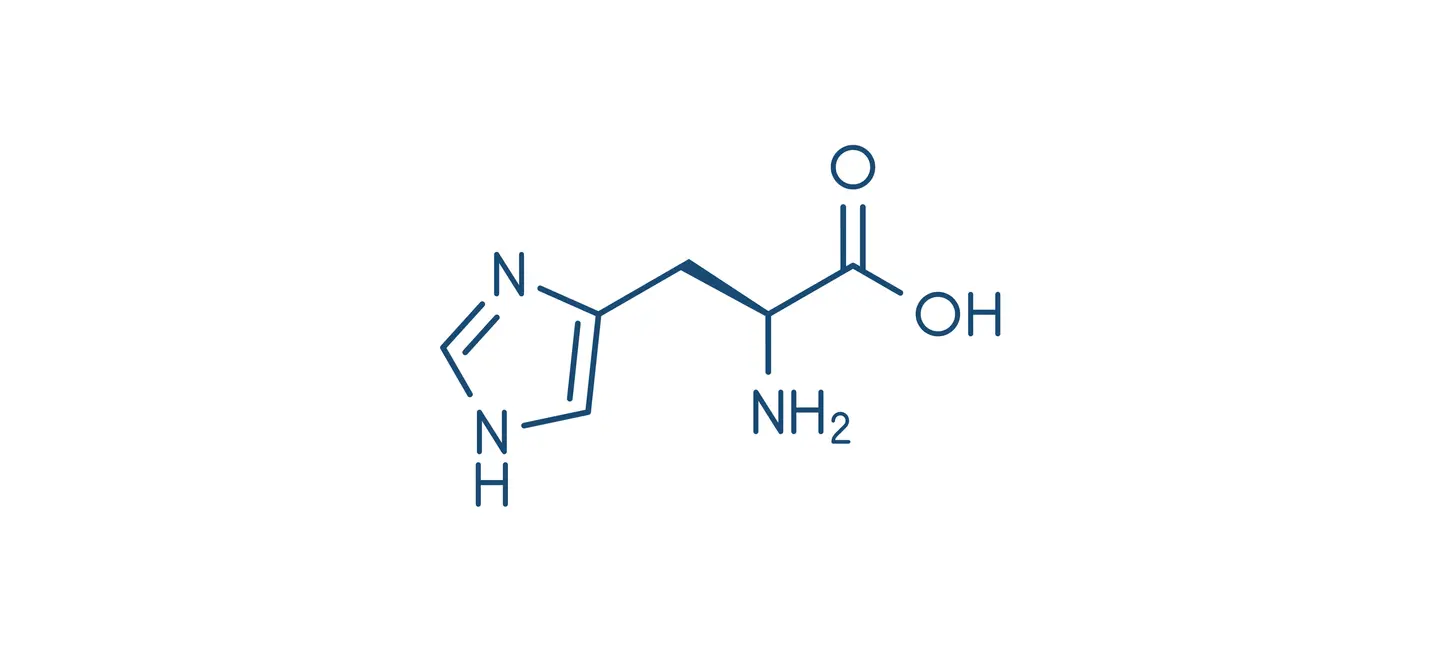
Histidine is an essential amino acid. It is not made by the body, but is consumed in foods. Amino acids are the building blocks of protein.
Histidine is involved in many different metabolic processes in the body.
People use histidine for diarrhea due to cholera infection, eczema, kidney failure, metabolic syndrome, and many other conditions, but there is no good scientific evidence to support these uses.
Is It Effective?
NatMed Pro rates effectiveness based on scientific evidence according to the following scale: Effective, Likely Effective, Possibly Effective, Possibly Ineffective, Likely Ineffective, Ineffective, and Insufficient Evidence to Rate.
- An infection of the intestines that causes diarrhea (cholera). Drinking a solution containing histidine seems to reduce diarrhea in people with cholera who are also receiving antibiotics.
There is interest in using histidine for a number of other purposes, but there isn't enough reliable information to say whether it might be helpful.
Is it Safe?
When taken by mouth: Histidine is commonly consumed as part of the diet. Histidine supplements are possibly safe when used short-term. Doses of up to 4 grams daily have been used safely for up to 12 weeks. It seems to be well-tolerated.
Special Precautions & Warnings:
Pregnancy and breast-feeding: Histidine is commonly consumed as part of the diet. There isn't enough reliable information to know if histidine is safe to use in larger amounts as medicine when pregnant or breast-feeding. Stay on the safe side and stick to food amounts.
Folic acid deficiency: People with folic acid deficiency should avoid histidine. It can cause an unwanted chemical called formiminoglutamic acid (FIGLU) to build up in the body.
It is not known if Histidine interacts with any medicines. Before taking Histidine, talk with your healthcare professional if you take any medications.
There are no known interactions with herbs and supplements.
There are no known interactions with foods.
Histidine is a natural part of the diet. L-histidine supplements have most often been used by adults in doses of 4 grams by mouth daily. Speak with a healthcare provider to find out what dose might be best for a specific condition.
(2S)-2-Amino-3-(1H-Imidazol-5-yl) Propanoic Acid, (S)-4-(2-Amino-2-Carboxyethyl) Imidazole, Histidina, L-Histidine, L-Histidine AKG, L-Histidine-Alpha Ketoglutaric Acid, L-Histidine HCl, Levo-Histidine, (S)-Alpha-Amino-1H-Imidazole-4-Propanoic Acid.
Information on this website is for informational use only and is not intended to replace professional medical advice, diagnosis, or treatment. While evidence-based, it is not guaranteed to be error-free and is not intended to meet any particular user’s needs or requirements or to cover all possible uses, safety concerns, interactions, outcomes, or adverse effects. Always check with your doctor or other medical professional before making healthcare decisions (including taking any medication) and do not delay or disregard seeking medical advice or treatment based on any information displayed on this website.
© TRC Healthcare 2024. All rights reserved. Use and/or distribution is permitted only pursuant to a valid license or other permission from TRC Healthcare.
